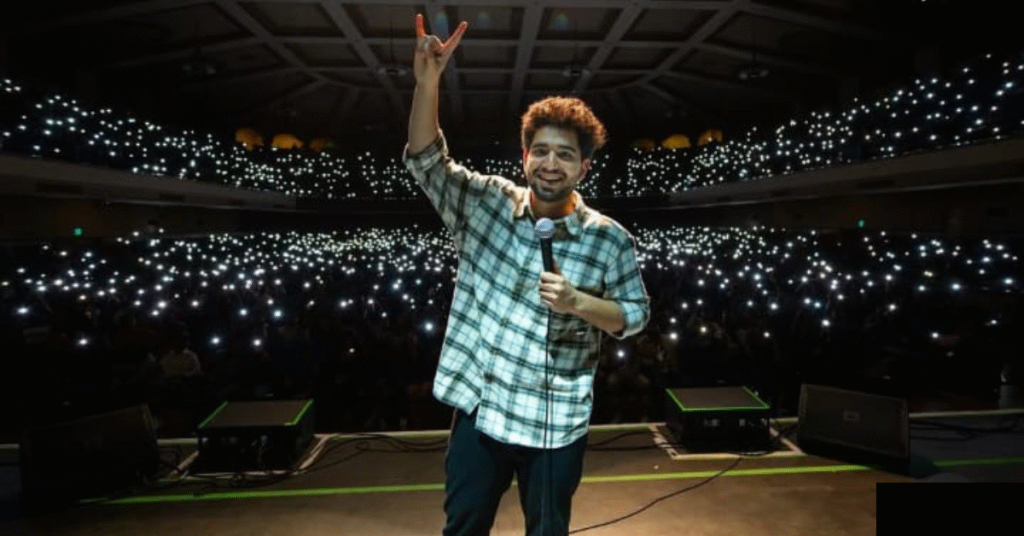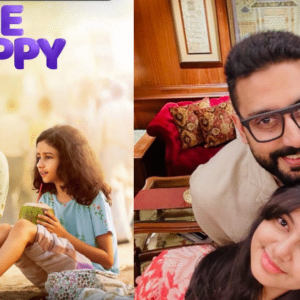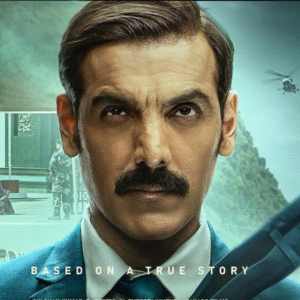
Mumbai, March 18, 2025 –
Stand-up comedy has always walked the thin line between humor and controversy, but recent developments involving popular comedian Samay Raina have reignited the debate around artistic freedom, public sentiment, and legal boundaries. As per the latest updates, Samay Raina has received a second summon from the Maharashtra Cyber Cell, following a case filed over allegedly offensive content aired in his recent show, “India’s Got Latent.”
This comes on the heels of his highly anticipated performances at Delhi’s Talkatora Stadium, which were scheduled for March 21–23, 2025, now being officially cancelled by BookMyShow. The cancellation was confirmed quietly, without a detailed public explanation, leaving thousands of ticket-holding fans stunned.
The Backdrop of the Controversy
The trigger point appears to be a segment in the satirical sketch comedy “India’s Got Latent,” which viewers claim targeted religious sentiments and certain communities. Initially aired as part of Raina’s online content, the sketch quickly gained viral attention—both positive and negative. While some applauded its fearless take on socio-political topics, others viewed it as a step too far, sparking outrage across social media platforms.
A formal complaint was filed, and Samay Raina was summoned by the Maharashtra Cyber Cell, requesting his presence for questioning. After the initial notice, which allowed for a virtual appearance, a second summon has now been issued demanding that he appear in person on March 19, 2025, a move that indicates escalated seriousness in the investigation.
The Cancel Culture Debate Returns
The cancellation of his Delhi shows has not only disappointed fans but has also intensified the ongoing national conversation on cancel culture, censorship, and the boundaries of comedy. BookMyShow’s decision to halt the event has been interpreted by some as corporate caution, while others view it as premature and unfair to an artist yet to be proven guilty.
Comedians and social media influencers are expressing divided opinions. While some believe comedians should be free to express social critique through satire, others argue for more sensitivity in a diverse country like India, where humor can easily be misconstrued or weaponized.
The Growing Role of Cyber Cells in Content Regulation
In recent years, India’s cyber law enforcement has become increasingly active in regulating digital content. With comedy, political commentary, and social critique often living on the edge, creators are finding themselves more frequently at odds with legal systems. The Maharashtra Cyber Cell, by issuing a second summon to Raina with an insistence on physical presence, is sending a message that content shared on digital platforms is not immune from accountability.
This development follows a pattern seen in other high-profile cases where comedians, artists, and influencers were brought under scrutiny for allegedly hurting religious sentiments or spreading misinformation—even when the content was satirical in nature.
What This Means for Samay Raina’s Career
For Samay Raina, this controversy is a defining moment. From being known as one of the brightest minds in India’s new wave of comedians to becoming a central figure in a national legal debate, the shift is significant. His response—or silence—over the next few days could shape not only his own reputation but potentially set a precedent for other comedians navigating similar challenges.
His team has not yet released a public statement, but fans are closely watching his social channels and waiting to hear whether the shows will be rescheduled, if legal counsel will release a formal statement, or if he’ll take a stand at the March 19 appearance.
India’s Comedy Landscape: At a Crossroads
The situation has brought India’s entire comedy circuit into the spotlight. Comedians have always used wit and exaggeration to reflect the state of society, but as online content becomes increasingly mainstream, the stakes are rising. Platforms like YouTube, BookMyShow, and Instagram now operate under more intense regulatory and public scrutiny.
Moreover, audiences are evolving. What might once have been brushed off as harmless fun is now dissected and debated with political, religious, and cultural lenses. For creators like Raina, who built a brand around unfiltered expression, this evolution presents both a challenge and an opportunity.
Legal Experts Weigh In
Legal commentators suggest that the case, while serious, could open up larger conversations about the boundaries of free speech in India. According to cyber law analysts, the summons and show cancellations reflect an increasing tendency of legal bodies to intervene in content considered even mildly controversial, especially when it trends on social media and receives mass attention.
However, others argue that with such vast audiences, comes great responsibility. Comedy, though creative in form, is still subject to the same laws that govern speech, public sentiment, and national harmony.
What Happens on March 19?
All eyes are now on March 19, when Samay Raina is scheduled to appear before the Cyber Cell in person. The outcome of that meeting could set the tone for the next wave of comedy in India—will it continue to be bold and boundary-pushing, or will creators retreat into safer, more curated content?
Whether this results in a legal battle, a public apology, or a larger societal shift, one thing is clear: India’s comedy scene is no longer just about getting laughs. It’s now a frontline in the ongoing conversation about speech, society, and the digital age.
Stay tuned to ibizzworld for more updates.








